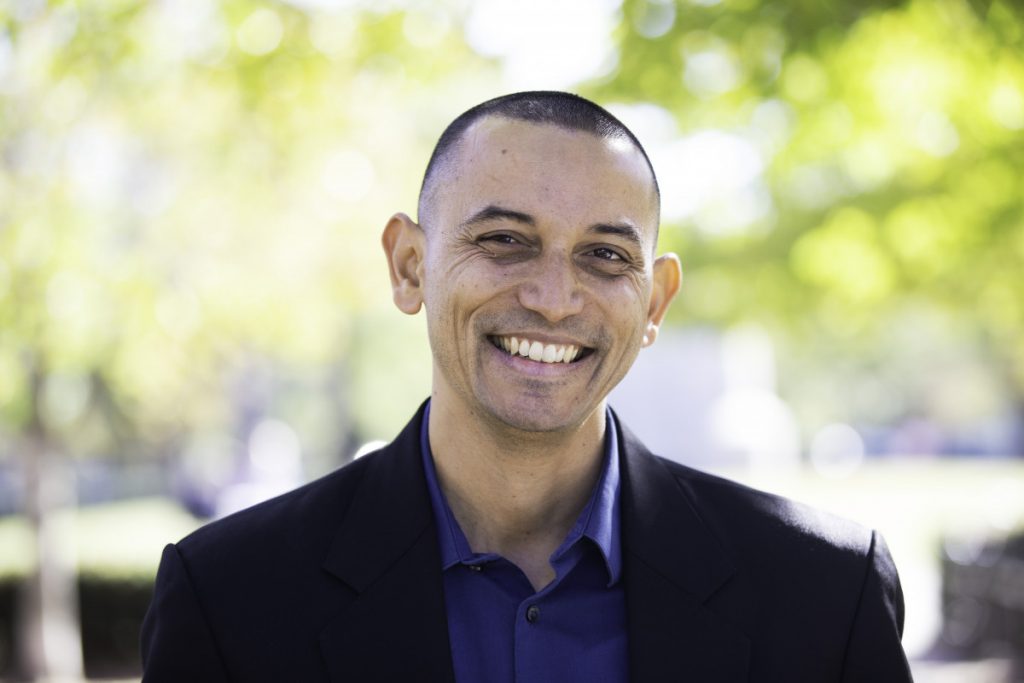The alignment of politics with human rights and religion has evolved into a never-ending battle fought among various religious groups. The Rev. Adam Russell Taylor works toward bringing political peace through faith.
As the president of Sojourners, Taylor works with other faith leaders in partnership to build a more inclusive multi-theological democracy. He will give his lecture, titled “Dignity for All: Faith, Spirituality and Human Rights,” at 2 p.m. Monday, July 11, in the Hall of Philosophy.
His presentation will launch Week Three of the Interfaith Lecture Series, “The Spirituality of Human Rights.”
Taylor will start with the history surrounding human rights, then dive into a discussion on a religious commitment to human rights.

“To bring human rights to life, we desperately need to better tap into the power of spirituality and religion,” Taylor said. “There’s a bit of a risk and danger that human rights can feel fairly technocratic.”
A lot of people, particularly in the United States, aren’t knowledgeable about the importance of human rights, Taylor said. He hopes to use religious traditions to gain greater support for a commitment to human rights.
“If we want to live in a free society where everyone is able to thrive and where everyone’s rights are respected, we need to understand the nature of human rights,” Taylor said.
Taylor said behind the discourse and framework on human rights is a commitment to human dignity. Human rights are lived out through law, practice and policy, but he wants the religious community to be an advocate for human rights.
“Unfortunately, human rights are under assault around the world,” Taylor said. “We see a really alarming rise of religious persecution, of xenophobia, of various forms of nationalism. … We see (an) increasing rise of more authoritarian and autocratic styles of leadership.”
Human rights in the United States are in jeopardy, Taylor said, but he believes shared commitments and values are aiding the process to defend and protect human rights. He also encourages religious people to engage politically, not just through voting but also through civic acts, advocacy and building relationships with their respective members of Congress.
Sojourners, a Christian ecumenical peace and justice organization, focuses its work on mobilizing advocacy and partnering with people of other faiths, and has a magazine and a digital publication that discusses the intersection of faith, politics and culture.
“It’s exciting and it’s a privilege to be able to inspire people,” Taylor said.
He said the broken police system, the right to vote, democracy, immigration, poverty and economic justice are some of the issues he works to fix with Sojourners.
“Our faith calls us to be engaged in the world and to bring our values to bear on some of the greatest injustices that we see around us,” Taylor said.
Taylor quoted Martin Luther King Jr. to exemplify the need to separate church and state:
“The church must be reminded that it is not the master or the servant of the state, but rather the conscience of the state.”
While most people come from their own preconceived religious convictions, Taylor said politics are not a spectator sport, and religion should be a factor — but not a solution — in addressing human rights issues.
“I think it’s important … that we don’t try to take over one political party (and) only make a religious argument,” Taylor said. “We’ve got to make another argument that is going to resonate and convince the broader public about what is right and what we think is best.”
Taylor was part of the advisory council for a study conducted by The Fetzer Institute focused on spirituality in America, which found that spirituality is highly correlated with social attitudes and activities, as well as civic engagement.
“I’m going to really try to make the case that we need more and better spirituality, not less of it, in order to supercharge campaigns and movements that have enabled us to make our commitments to human rights real,” Taylor said.




